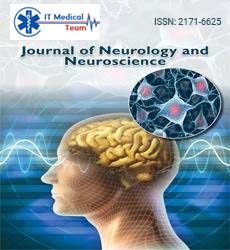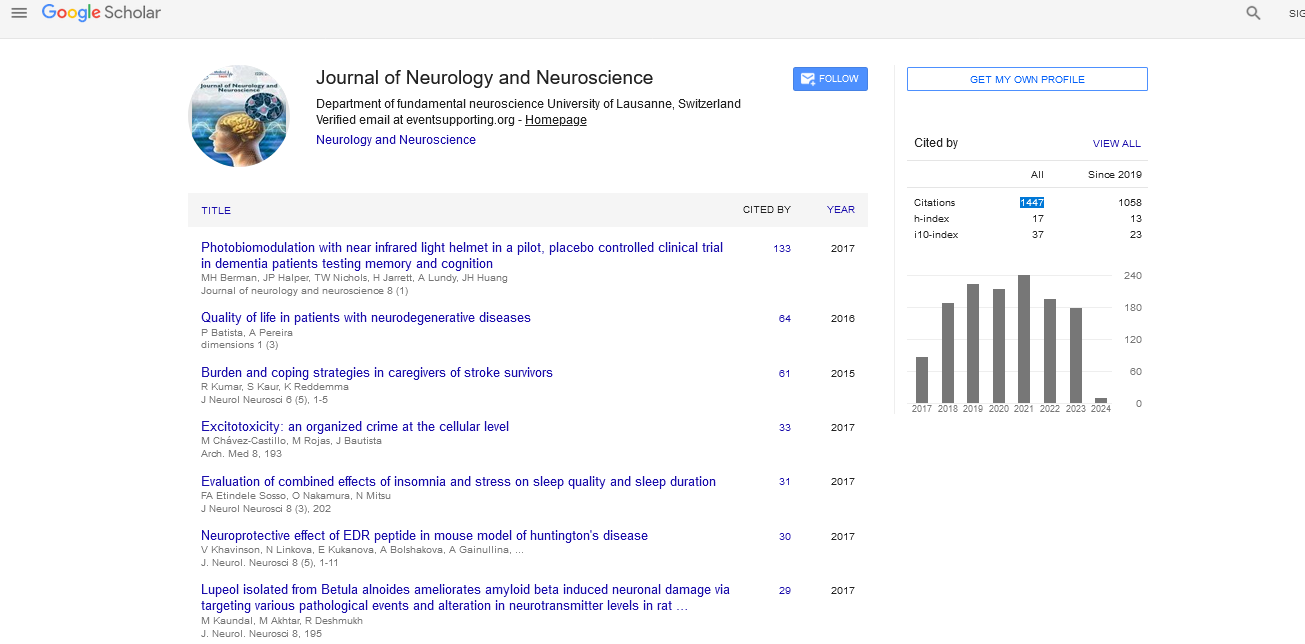Jesús Porta-Etessam1*, Alberto Villarejo2, Lidia Gómez Vicente1
1Neurology Department. Hospital Clínico San Carlos. Madrid. Spain
2Neurology Department. Hospital “12 de octubre”. Madrid. Spain
*Corresponding Author:
Dr Jesús Porta-Etessam
C/ Andrés Torrejón, 15, 7º 28014 Madrid. Spain
Phone: +34 667062490
Fax: +34 91 5527195
E-mail: jporta@yahoo.com
Tardive dyskinesia (TD) is one of the most worrisome side effects associated to narcolepticstreatment (1, 2). Repetitive and patterned movement characterizes this condition.The most typical form of TD is oro-lingual-masticatory the movement (3). Wereport a patient who developed a TD after 9 month of treatment with rivastigmine (cholinesterase inhibitor). Continuos cholinergic-dopaminergic misbalance could bea factor in the pathophysiology of TD
To the editor:
Tardive dyskinesia (TD) is one of the most worrisome side effects associated to narcoleptics treatment [1,2]. Repetitive and patterned movement characterizes this condition. The most typical form of TD is oro-lingual-masticatory the movement [3]. We report a patient who developed a TD after 9 month of treatment with rivastigmine (cholinesterase inhibitor). Continuos cholinergic-dopaminergic misbalance could be a factor in the pathophysiology of TD.
A 81-year-old woman presented with a 18 month history of probable Alzheimer’s disease (NINCDS-ADRDA criteria). Because of memory dysfunction, she was given rivastigmine with progressive monthly increase to 3 mg twice a day. After nine months with a dose of 3 mg twice a day memory slowly increase but the patient developed repetitive and involuntary oro-lingual-masticatory movement. The patient was diagnosed of TD and rivastigmine was quickly tapered. She improved, however 3 month later the involuntary movement still persists.
TD has been related to antidopaminergic drugs, however, as other movement disorders could be the expression of a cholinergic-dopaminergic misbalance, as has been propose for the Pisa syndrome [4]. Cholinesterase inhibitor could induce distonia in parkinson disease or worsen parkinsonism symptoms in some cases [5,6], however in a long retrospective analysis there were no exacerbation of motor dysfunction [7]. Theoretically cholinergic stimulation could be a factor in TD and Cholinesterase inhibitor could induce TD in Alzheimer disease.
2218
References
- Yassa R, Jeste DV: Gender differences in tardive dyskinesia: a critcal review of the literature. Schizophr Bull 1992; 18:701–715.
- Jeste DV, Okamoto A, Napolitano J. Low Incidence of Persistent Tardive Dyskinesia in Elderly Patients With Dementia Treated With Risperidone. Am J Psychiatry 2000; 157:1150–1155.
- Jankovic J. Stereotypies. In: Marsden CD, Fahn S (Eds). Movement Disorders 3. Oxford. Butterworth-Heinemann 1994: 503-517.
- Kwan YT, Han IW, Balk J. Relation between cholinesterase inhibitor and Pisa syndrome. The Lancet 2000; 355: 2222.
- Pavlis CJ, Kutscher EC, Carnahan RM, Kennedy WK, Van Gerpen S, Schlenker E. Rivastigmine-induced dystonia. Am J Health Syst Pharm. 2007;64:2468-70.
- No authors listed. Cholinesterase inhibitors: tremor and exacerbation of Parkinson’s disease. Prescrire Int 2007; 16: 197-8.
- Oertel W, Poewe W, Wolters E et al. Effects of rivastigmine on tremor and other motor symptoms in patients with Parkinson’s disease dementia: a retrospective analysis of a double-blind trial and an open-label extension. Drug Saf. 2008;3:79-94.





